Rheumatology Division for Professionals
The Department of Medicine's Rheumatology Division is a world leader in the clinical care of patients with some of the most complex of all medical diseases, including rheumatoid arthritis, lupus, scleroderma, and vasculitis. The Division's researchers have made important contributions to development of novel therapies that are improving patient outcomes.
The Division’s researchers have investigated the cellular and molecular mechanisms that underlie those diseases, and their work has led to development of novel therapies that are improving patient outcomes. Education of medical students and physicians-in-training is a high priority of the Division, as demonstrated by our development of the Rheumatology Academy of Medical Educators.
Our mission: To improve the lives of patients with autoimmune, inflammatory and musculoskeletal diseases through application of new scientific knowledge that advances healthcare, and by training the next generation of rheumatologists as clinicians, scientists and future academic leaders.
About the Rheumatology Division
Patient care
Our division provides over 35,000 ambulatory care visits a year. More than 30 full-time physicians cover the in-patient Rheumatology service at HSS and provide the Rheumatology consultation service for NewYork-Presbyterian Hospital, Cornell Division, Memorial Sloan-Kettering Cancer Center, and the Rockefeller University In-Patient Service. Faculty members of the Division of Rheumatology and Department of Medicine at HSS have academic appointments at Weill Cornell Medical College (WCMC) and hospital appointments at the East Campus of NewYork-Presbyterian Hospital. The Rheumatology Program is complemented by the Weill Graduate School of Medical Sciences of Cornell University (WGSMSCU) Program in Immunology which has 30 faculty, including 6 based at HSS in Rheumatology (*) and the WGSMSCU (**) Program in Clinical Epidemiology and Health Services Research, which has 12 faculty including 9 affiliated with HSS. All physician faculty members are Board Certified in Rheumatology.
Education
Our division provides a three year Fellowship in Rheumatology, with two to three Fellows added each year. The first year is largely clinical, the second both clinical and research-based, and the third year largely research-based. Our division is committed to training the future leaders in Rheumatology and in providing the optimal experience in basic and clinical research which will provide our Fellows with the training that will lead to future success. We meet the Rheumatology and Immunology educational needs of the Residents at NewYork-Presbyterian Hospital, Cornell Division, and those of the medical students at Weill Cornell Medical College.
Research
We are committed to the training of our Fellows in basic and clinical research methodology, and to state-of-the-art, ongoing research which will advance the care of patients with rheumatic disease, now and in the future. We have eleven full-time physician researchers, along with 15 clinically-based Rheumatologists, along with PhD scientists producing high-level contributions to the medical literature. We have an active clinical research program, testing the latest innovations in treatment.
Community Service
Our division provides a large number of community programs to educate and assist patients. We give numerous community lectures on Rheumatologic topics. We supervise patient self-help groups, e.g., in rheumatoid arthritis, lupus, and myositis. Our website has a portion dedicated to patient education. Numerous services are provided to our Rheumatology clinic population, including the Voices program, which provides free assistance with dealing with insurance issues and extensive availability of social workers.
Goals of the Rheumatology Division
Understanding rheumatologic diseases
The joint is a complex organ of the body that functions at its best when all of its parts are working well and in unison. However, there are many disorders that can damage its many components either singly or all at once, including cartilage, bone, ligaments, and tendons. Osteoarthritis, the most common type, causes cartilage and bone abnormalities that can lead to joint damage, and, in the worst case, the need for joint replacement. We are now studying new medications that can actually modify this disorder and, hopefully, prevent the advancement of the joint dysfunction. Significant advances in the treatment and prevention of osteoarthritis are available at HSS. Rheumatoid arthritis, which occurs in approximately 1% of the population, has a greater potential for causing irreversible joint damage in many parts of the body. It is an autoimmune disorder in which the body's immune system wages battle on itself and is probably triggered by some environmental factor such as a viral infection. The greatest research and therapeutic advances have been made in this disorder and we now, daily, reverse the ravages of this disorder with advanced drugs that safely reset the immune response and turn off its destructive personality. Along with these disorders, HSS rheumatologists are considered the experts in the care of other disorders such as:
- Other autoimmune disorders such as systemic lupus erythematosus, scleroderma, polymyositis and dermatomyositis, Sjogren's syndrome, and various forms of vasculitis such as granulomatosis with polyangiitis, polyarteritis nodosa, temporal arteritis, and polymyalgia rheumatica;
- Infectious arthritis such as Lyme disease, septic arthritis, viral arthritis due to hepatitis B and C, and parvovirus B 19;
- Inflammatory joint disorders such as psoriatic arthritis, reactive arthritis or Reiter's syndrome, ankylosing spondylitis, and the arthritis associated with ulcerative colitis and Crohn's disease.
- Fibromyalgia, tendonitis, bursitis, and overuse syndromes
Experience Counts
The high volume of patients seen by our HSS rheumatologists, as well as complexity of patient cases, makes the level of care provided extraordinary and unique. Because many rheumatic diseases tend to be chronic, patients who come to HSS benefit from developing long-term and close relationships with their rheumatologist. These knowledgeable and compassionate physicians understand the illnesses that they treat and bring the most modern and optimal treatments to their patients. Their association with the foremost academic medical center in the world brings the best medical care to each doctor-patient interaction. We focus our efforts on caring, trust, communication, and the appreciation of what state-of-the-art medicine is.
World Class, Integrated Rheumatologic Care
On a day-by-day basis, the HSS rheumatologists interact closely with many other essential health care professionals necessary to improve our patient's lives and rid them of the limitations imposed upon them by arthritis. This includes our world class Orthopaedic surgeons, physical and occupational therapists, radiologists, anesthesiologists, and clinical and basic research scientists.
As an academic medical center we are dedicated to putting ourselves out of business through research. We are constantly defining the main clinical issues that affect our patients and then going back to the laboratory to find the reason they exist and find a cure for it. The National Institutes of Health, the Federal Government, and innumerable Foundations have lauded the research performed at HSS as the best there is, and supported our research for the past fifty years.
The Bright Future
We not only look forward to a time when our patients no longer have their lives altered by arthritis, but we are working tirelessly towards that goal. Our modern clinical and research facilities are poised to find the causes and cures of arthritis and autoimmune disorders. As a Musculoskeletal Center of Excellence, we offer a unique medical environment in which improvement of our patients' lives is an everyday occurrence and the cure of all disease is a goal that is just on the horizon.
Rheumatology Centers
Disease-Focused Centers of Excellence
Dedicated faculty collaborate to establish clinical and academic programs that address our major disease areas. The professional and ancillary staff in our centers have designed mechanisms to improve patient access, provide patient education, define metrics of quality care, design translational and clinical research projects, and coordinate communication of our activities to the patient and academic communities.
The disease areas addressed by our Centers of Excellence include inflammatory arthritis; lupus and antiphospholipid syndrome; and scleroderma, vasculitis, and myositis. Learn more about the Centers of Excellence.
HSS Rheumatologists are also leading experts in the treatment of osteoarthritis (OA), osteoporosis, fibromyalgia, gout, and pediatric rheumatologic conditions. Patient care is coordinated with collaborating physicians with special expertise in orthopedics, pulmonary medicine, cardiology, infectious disease, kidney disease and others when warranted.
Professional Education Opportunities
HSS is dedicated to the continued education of its faculty and staff. Through CME programs, funded grants, and fellowship training, the HSS Academy of Rheumatology Medical Educators has created multiple opportunities for teachers and trainees to enhance their knowledge of rheumatologic diagnosis and treatment therefore contributing to the overall quality of excellence delivered at HSS.
HSS Academy of Rheumatology Medical Educators
The Academy aims to create a stimulating academic educational environment that elevates the quality of teaching throughout the division and promotes teaching careers and education research.
High priority is given to the support of career development for members of the HSS Division of Rheumatology who commit their academic activities to the advancement of medical education, education research, curriculum development, and a general elevation of the teaching skills of all faculty members.
These aims:
- Foster collegiality and the sharing of ideas on teaching and education.
- Stimulate the creation of innovative teaching enrichment programs and curricula.
- Enhance the career development of clinician-scholar-educators.
- Develop an atmosphere of scientific rigor and science directed at improving teaching effectiveness and curricula.
- Fund innovative projects.
Continuing Medical Education Programs (CME)
HSS offers a wide range of on-site professional and CME programs, including accredited and non accredited professional education program offerings, CME credit transcripts, online educational resources, and activity director resources.
Fellowship Training
The Rheumatology Fellowship Program is designed for training physicians interested in developing academic and clinical careers in rheumatology. This three-year program combines a broad-based and in-depth clinical and research experience supporting the Rheumatology department’s mission of delivering the highest quality academic training for rheumatology professionals.
HSS Academy of Rheumatology Medical Educators
The aims of the Academy are:
- To create a stimulating academic environment for educators that enhances the quality of teaching
- To define a clear and effective structure for the development and management of education programs at HSS
- To promote teaching excellence at all levels for every type of teacher and trainee
- To elevate the status of medical educators in the HSS Division of Rheumatology
Leadership
Director: Stephen Paget, MD, FACP, FACR
Associate Director: Jessica Berman, MD
Members of the HSS Rheumatology Education Council: Juliet Aizer, MD, MPH; Anne R. Bass, MD; Edward J. Parrish, MD; Jane E. Salmon, MD
Education Division representative: Laura Robbins, DSW, CSW, MSW
These members are joined by representatives from Rheumatology and other collaborating HSS departments.
Scientific Advisory Committee:
Michael Battistone, MD
Associate Professor of Medicine, University of Utah School of Medicine
Molly Cooke, M.D.
William G. Irwin Endowed Chair, Director of the Academy of Medical Educators Professor of Medicine, University of California, San Francisco
Marc L. Dickstein, MD
Professor of Clinical Anesthesiology, NewYork-Presbyterian Hospital, Columbia University College of Physicians and Surgeons
Kenneth M. Ludmerer, MD
Professor of Medicine, Mabel Dorn Reeder Distinguished Professor of the History of Medicine, Washington University School of Medicine
Michael H. Pillinger, MD
Associate Professor of Medicine, Rheumatology Program Director, NYU Langone Medical Center/NYU Hospital for Joint Diseases
Kenneth S. O'Rourke, MD
Associate Professor of Medicine, Wake Forest School of Medicine
Specific Goals
The HSS Academy of Rheumatology Medical Educators was established in order to:
Support career development for members of the division who commit their academic activities to the advancement of medical education, education research, and curriculum development:
- Enhance the career development of clinician-scholar-educators.
- Develop an atmosphere of scientific rigor and science directed at improving teaching effectiveness and curricula.
- Fund innovative projects.
Elevate the teaching skills of ALL faculty members:
- Create a standard skill set for all members of the department.
- Offer direction and specific opportunities for self-improvement of teaching skills.
- Foster collegiality and the sharing of ideas on teaching and education; stimulate the creation of innovative teaching enrichment programs and curricula.
- Provide access to simulated and asynchronous learning opportunities.
Encourage ongoing, critical review of all divisional education programs:
- Application of optimal metrics to all education activities
- Prioritization of teaching activities and target learners
- Evaluation of program effectiveness: retaining effective programs, improving others, or completely reorganizing unsuccessful programs
Fund grants for innovative teaching projects.
Academy Innovative Grants Program
The Hospital for Special Surgery (HSS) Academy of Rheumatology Medical Educators wishes to provide clinician scholar educators opportunities for funding similar to those which exist for basic, clinical and translational researchers. Doing so raises the importance of education scholarship to a level of equal importance.
Education scholarship is supported through grants to those interested in education research. Annual grants aimed at the development of new teaching programs and curricular change may receive up to $50,000/grant through a competitive annual process.
To date over $954,045 in funding has been awarded to scholars.
Funding Priorities
Priorities for funding include the following areas:
- Teaching strategies involving multiple levels of learners
- Unique assessment tools for learners
- Integration of innovative technologies and asynchronous learning into the curriculum
- Patient-centered preventative care
Our Scholars
During the time of the grant the recipients have produced a large amount of education scholarship, including national meeting abstracts, oral presentations, publications in peer-reviewed journals, enduring curricula and digital learning tools.
Recipients have recognized many benefits to their careers following the grant including increased recognition as an educator scholar, teaching awards, additional time for research activities, additional education degrees and certifications and promotions or other grants awarded.
Information and Inquiries
For more information about the HSS Academy of Medical Educators, contact Stephen Paget at pagets@hss.edu or 212.606.1845 or Jessica Berman, MD at bermanj@hss.edu or visit us online.
HSS Academy of Rheumatology Medical Educators Grant List 2012-2020
Curriculum
- Ethics Course in Fostering Medical Professionalism – Ronald MacKenzie
- Rheumatology Fellows’ Epidemiology Curriculum – Juliet Aizer
- Promoting Adult Learning Among Academic Trainees: Continued Pedagogic Optimization of Rheumatology Fellows’ Epidemiology Journal Club – Lisa Mandl
- Comprehensive Musculoskeletal Exam Curriculum for the Inflammatory Arthritis Clinic – Vivian Bykerk
- The Nurse - Physician Relationship: Inter-professional Orientation – Dordie Moriel
- HSS Nursing Community Education Initiative - Patricia Quinlan
- Pilot Study of a Multidisciplinary Gout Patient Education and Monitoring Program: Finding the Optimal Team for Gout Management – Theodore Fields
- Integration of Widefield Capillary Microscopy and Dermoscopy into the Rheumatology Fellows Scleroderma Clinic Curriculum – Jessica Gordon
- Focused Assessed Transthoracic Echocardiography (FATE): An Innovative Educational Curriculum for Anesthesiology Residents and Fellows – Stephen Haskins
- Effect of Change in Pedagogic Technique in an Established Curriculum – Edward Parrish
Technology
- Antiphospholipid Syndrome iBook for Medical Students and Residents – Doruk Erkan
- Critical Literature Assessment Skill Support for Rheumatology (HSS CLASS-Rheum®) – Juliet Aizer and Lisa Mandl
- Lupus Smartphone App for Patients – Alana Levine
- Novel Ultrasound Teaching Methods: A Curriculum of Didactic and Practical Learning – Jessica Berman
Assessment
- Development and Validation of an Instrument to Support Teaching and Assessment of Knowledge and Skills in Critical Appraisal of Medical Literature – Juliet Aizer
- An Annual Rheumatology Objective Structured Clinical Examination (ROSCE) for Fellowship Trainees: Difficult Patient Scenarios to Test Professionalism – Jessica Berman
- An Annual NYC Inter-institutional Rheumatology Objective Structured Clinical Examination (ROSCE) Using Inter-Professional Evaluators Provides a Unique 360-degree Assessment of Trainee Professionalism – Jessica Berman
Mentoring
- Optimizing Mentorship for Research Mentors – Carol Mancuso
- The Professional Development Impacts of the Adult Learning and Leadership Program for Medical Educators: Implications for Design – Juliet Aizer
Other Resources for Professionals
Clinical Trials
- Clinical Trials.gov: Information from the National Library of Medicine
- Search the Studies at the National Institutes of Health
- Center Watch: Industry-Sponsored Clinical Trials
- The Lupus Clinical Trials Consortium
- Lupus Clinical Trials at HSS
Professional Organizations
- American College of Rheumatology
- American Academy of Orthopaedic Surgeons
- American Society for Bone and Mineral Research
- Australian Rheumatology Association
- British Society for Rheumatology
- Clinical Immunology Society
Government Organizations
- National Institute of Arthritis and Musculoskeletal Diseases
- MEDLINEplus: Health Information from the National Library of Medicine
National Health Organizations
- The Arthritis Foundation
- The Arthritis Society (Canada)
- American Autoimmune Related Diseases Association
- American Behcet's Disease Association
- American Lyme Disease Foundation
- CFIDS Association of America (Chronic Fatigue and Immune Dysfunction Syndromes)
- Lupus Foundation of America (LFA)
- The SLE Foundation
- Myositis Association of America
- National Psoriasis Foundation
- Scleroderma Foundation
- The Sjogren's Syndrome Foundation
- Spondylitis Association of America
Educational and Research Sites
A Unique Collaboration Between the Bench and the Bedside
Integration of academic activities among physician scientists in the hospital’s Research Division and the clinical rheumatologists provides the ideal setting for the hospital’s pacesetting research. HSS doctors and scientists work hand-in-hand, pioneering new discoveries that will lead to new medical treatments.
In addition, collaborative care of patients with rheumatologic disorders that require surgery has generated important clinical research led by scientists, rheumatologists and orthopedic surgeons. This uniquely collaborative “bench to bedside” model has long been the philosophy of HSS, where research ideas are spurred by clinical experiences, and where findings translate into improved treatments and best practices.
Featured Articles and Research Highlights
- Complex Cases - Grand Rounds at HSS
Published quarterly - Images and reports of managing complicated, multidisciplinary cases throughout the hospital - What's the Diagnosis?/Ultrasound of the Month
Difficult cases from the records of HSS and the teaching files of the Department of Radiology and Imaging.
Synergistic Activation of Inflammatory Cytokine Genes May Suggest New Therapeutic Approaches
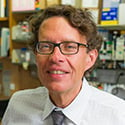
The identification of molecular mechanisms involving chromatin that act synergistically during the inflammatory process may help reveal potential new therapies to arrest tissue damage.
A team of HSS researchers conducted a genome-wide analysis to better understand the strong synergistic activation of cytokine production in human macrophages. Their findings showed that linked actions between signaling mechanisms that call for increased inflammation and epigenetic actions prepare genes for increased transcriptional activation. The team further found that interferon-gamma (IFN-γ) primes the chromatin for key promoters and enhancers of inflammation—including TNF, IL6, IL12B—preparing the genes for transcription. The primed chromatin enables increased response to the signaling for more transcription that comes from Toll-like Receptors (TLR). Priming is mediated by pathways and mechanisms used in inflammatory signaling, including a stable STAT1 and IRF1 occupancy and histone acetylation.
This priming process also makes cells more susceptible to inhibition by two categories of drugs, Janus kinase (Jak) inhibitors and Bromodomain and Extra-Terminal (BET) inhibitors. By selectively targeting priming mechanisms while leaving residual TLR functions intact, new therapeutic approaches may be less toxic to the patient.
Enhanced Rho-Associated Protein Kinase Activation in Patients with Systemic Lupus Erythematosus

A study that found higher levels of Rho-associated protein kinase (ROCK) in patients with systemic lupus erythematosus (SLE) versus healthy controls, suggests a potentially significant therapeutic target for the treatment of SLE
Because of its role in the differentiation of TH17 cells and the production of two key cytokine messengers in the pathogenesis of systemic lupus erythematosus—interleukin 17 (IL-17) and interleukin 21 (IL-21)—enhanced ROCK activity has been identified as an area of interest in SLE research. In an analysis completed by HSS investigators, this association was confirmed both in an in vitro assessment of increased ROCK activation in TH17 differentiation using purified human cord blood, and in a cross-sectional evaluation of 28 SLE patients with 25 healthy matched controls.
Overall, the SLE patients expressed significantly higher median ROCK levels than that of healthy controls, 1.251 versus 0.5645, respectively. (these values were obtained by using ann ELISA-based ROCK kinase activity assay to measure ROCK activation.) Among the SLE patients, two subgroups were found, one with high ROCK values (16 of the 28 patients, or 57%) and one with low ROCK values. No healthy control had a high ROCK value.
A series of analyses were also performed to find possible correlations between level of ROCK activation and clinical manifestations and or immunologic characteristics of SLE. Although no association with known measures of disease activity (and only one clinical variable—absolute lymphocyte count) was found in this study, the team plans to follow patients longitudinally to assess any possible correspondence between fluctuations in ROCK activity and manifestations of SLE over time.
Moreover, because statins have been shown in vitro to inhibit ROCK activity, study of the potential role of these drugs as well as other ROCK inhibitors may eventually yield new therapeutic alternatives in the treatment of SLE.
Increased Rates of Arthroplasty in Patients with SLE Seen Over a Fifteen-Year Period

An analysis of discharge data for arthroplasty patients with systemic lupus erythematosus (SLE) compared with those who had no inflammatory or autoimmune conditions showed an almost two-fold increase in the SLE group from 1991 to 2005
A team of HSS researchers has found that arthroplasty rates among patients with SLE increased in similar proportions to overall joint replacement rates.
Hospital discharge databases from 10 American states were used to compare knee, hip, and shoulder arthroplasty rates. Among patients with non-inflammatory conditions the rate almost doubled, increasing from 124.5 cases/100,000 people to 247.5/100,000 (p < 0.001). Similarly, arthroplasty rates for patients with SLE increased from 0.17/100,000 to 0.38/100,000 (p < 0.001).
Researchers also found that the mean age in arthroplasty patients with SLE increased from 47.3 ± 17.0 in 1991 to 56.8± 16.0 in 2005. When stratified by age and sex, arthroplasty in SLE patients increased in all groups except women younger than 44 years old. (In contrast, arthroplasties associated with non-inflammatory conditions increased in this age group.)
A shift was also observed in the indications for joint replacement surgery among patients with SLE. In 1991, a diagnosis of osteonecrosis accounted for 53% of cases of arthroplasty and a diagnosis of osteoarthritis accounted for 23% of cases. This relationship was reversed by 2005, with osteonecrosis accounting for 24% and osteoarthritis accounting for 61% of joint replacement surgeries. Reduced reliance on high-dose corticosteroids, which are associated with osteonecrosis of the hip, has been proposed as one reason for this finding.
The shift in indications for arthroplasty in patients with SLE also suggests that increased longevity has resulted in more age-related osteoarthritis. Moreover, reduced morbidity has permitted more elective joint replacement surgeries.
Although individuals with SLE continue to represent only a small proportion of the total number of arthroplasties performed annually, their growing numbers underscore the need for widespread training in the care of these potentially complex cases.
DMARD Therapy Associated with More Optimistic Expectations in RA Patients Undergoing TKA

Rheumatoid arthritis patients on biologic DMARD therapy have more optimistic expectations about knee replacement surgery—comparable to those of osteoarthritis patients—than do RA patients not on biologics
Although patients with rheumatoid arthritis have been shown to have lower expectations of total knee arthroplasty, than do patients with osteoarthritis, recent findings showed no significant difference between these two groups when RA patients were taking DMARD therapy.
HSS investigators analyzed data from patients matched by age, sex, prior TKA, and preoperative function, who were enrolled in the Hospital’s TKA registry. All patients completed the Hospital’s Knee Expectations Survey, which employs a Likert scale to measure responses. Questions were designed to elicit preoperative expectations about pain relief, as well as a range of physical and psychosocial activities associated with mobility, including fitness for employment, ability to use public transportation and ability to participate in social activities.
An analysis of results gathered from 114 patients with RA (46.5T were taking biologics) and 228 patients with osteoarthritis showed no significant difference in expectations score (p=0.71) between OA patients and those RA patients taking biologics. RA patients not on biologics had expectation scores that were significantly lower (p=0.03) than these other groups.
Interestingly, there was a significant relationship between expectations and post-operative pain and function outcomes only in those patients who were not on biologic DMARDs. For patients with osteoarthritis or patients who were treated with biologic DMARDs, there was no relationship between expectations and post-operative pain and function.
Managing Pregnant Patients with Antiphospholipid Antibody Syndrome: Risk Stratification May Help Refine Treatment Recommendations
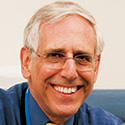
Clinical trials based on risk stratification and long-term follow-up of infants born to mothers with APS may result in more effective management during pregnancy
Adverse pregnancy outcome in patients with Antiphospholipid Syndrome (APS)—including fetal death, fetal growth restriction, prematurity, and early or severe preeclampsia—is associated with antiphospholipid antibodies (aPL). However, recent research suggests that not all aPL confer the same degree of risk, findings that may help guide future research and treatment.
A review of the literature by HSS rheumatologist Michael Lockshin, MD, supports the conclusion that among aPLs, LAC is the most powerful predictor of pregnancy loss. However, anticardiolipin antibody (aCL) and antibody to β2 glycoprotein I (aβ2GP-I) are also associated with adverse outcome. (The available data on aCL isotypes suggests that IgG carries more importance than IgM, and that IgA is not independently a predictor.) In addition, other clinical features, specifically coexisting SLE, contribute to pregnancy risk. (Prior thrombosis history, smoking, and trigger factors such as surgery, trauma, severe infections of any kind and oral contraceptive therapy also appear to increase risk.) In addition, Dr. Lockshin found that no study to date has sufficiently stratified patients to support an unequivocal recommendation of heparin treatment for prophylaxis against thrombosis and associated pregnancy loss, nor are clear guidelines for either dose or type—low-molecular weight or unfractionated—of heparin available. Concerns about the validity of findings from earlier studies include the omission of the role of additional risk factors as well as the potential role of aβ2GP-I, which was not identified until 1990.
Current treatment regimens for pregnant women with APS are based primarily on consensus data rather than on clinical trials and are guided by patient history; in those with no prior thrombosis, prophylactic doses of low molecular weight heparin or unfractionated heparin with low-dose aspirin are given, with treatment beginning at conception and continuing for 4-6 weeks post-partum. In patients with a history of thrombosis, full anticoagulant doses of low molecular weight heparin or unfractionated heparin are given, with treatment beginning at conception and continuing indefinitely. Dosing is reduced in the presence of renal impairment.
More recent outcomes studies at HSS suggest that LAC is the primary predictor of adverse pregnancy outcome after 12 weeks’ gestation. If LAC is not present, aCL and aβ2GP-1do not predict adverse pregnancy outcome.
Recommended areas of exploration for future study include possible alternatives to anticoagulation therapy (including those based on new findings about the biology of aPL- associated tissue damage.) For example, products that prevent complement activation may be of benefit. These therapies would seek to address injury or activation that may trigger clotting, and thereby stop the process before clotting occurs. However, designing safe and ethical clinical trials is complicated by multiple factors, including the need for very large numbers of patients to demonstrate success, and a high-level guarantee of the safety of intervention. In addition, owing to advances in neonatology, survival rates for premature or ill infants have increased. Therefore outcome criteria must include prematurity, growth restriction, and preeclampsia, as well as fetal death. Researchers should also follow infants through childhood and possibly into the teen years to determine long-term outcomes of intervention. .
Catastrophic Antiphospholipid Syndrome: Diagnosing a Rare but Highly Fatal Disease
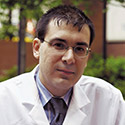
Featuring Cassyanne L. Aguiar, MD; Doruk Erkan, MD
A step-by-step clinical approach can address the diagnostic challenges of Catastrophic Antiphospholipid Syndrome (CAPS)
Catastrophic Antiphospholipid Syndrome (CAPS), the most severe form of the multisystem autoimmune disease, Antiphospholipid Syndrome (APS), can present the clinician with a number of diagnostic challenges, including the absence of a history of significant antiphospholipid antibody (aPL) positivity in almost half of all patients. In addition to the vascular thrombosis and/or pregnancy loss associated with persistently positive aPL, patients with CAPS have multiple organ involvement that develops over a short period of time, usually associated with microthrombosis.
Based on the classification criteria for CAPS[1] that were first proposed during the 10th International Congress on aPL, “Definite CAPS” is defined as: thromboses in three or more organs that develop in less than a week, microthrombosis in at least one organ, and persistent aPL positivity. “Probable CAPS” is when the patient develops only three out of four of these criteria. The authors refer to aPL-positive patients with multiple and/or life-threatening events who do not fulfill all of these criteria as “CAPS-like”—a term signaling the need for close monitoring for the development of CAPS, and aggressive treatment where indicated.
Diagnostic challenges in CAPS include: false-positive or negative aPL results during the acute event; overlapping features of other thrombotic microangiopathies; similarities between CAPS and features of sepsis associated with Disseminated Intravascular Coagulation (DIC); and similarities between CAPS and Heparin-induced Thrombocytopenia (HIT).
To address these potential diagnostic challenges in patients with suspected CAPS and multi-organ thrombosis, the authors review updated algorithms (2010)[2] for both those individuals with and without history of aPL positivity. They further advocate maintaining a high degree of suspicion in patients who meet some, but not all of the established diagnostic criteria for CAPS. Both diagnosis and management of CAPS are most effectively supported by a team approach including, but not limited to rheumatology, hematology, intensive care, infectious disease, nephrology, and a plasma exchange team, as well as obstetrics when relevant.
1) Asherson RA, Cervera R, de Groot PG, Erkan D, et al. Catastrophic antiphospholipid syndrome: international consensus statement on classification criteria and treatment guidelines. Lupus. 2003;12;530-534.
2) Erkan D, Espinosa G, Cervera R. Catastrophic antiphospholipid syndrome: Updated diagnostic algorithms. Autoimmunity Reviews. 2010;10(2):74-79.
Surges in Anti-dsDNA Can Predict Severe Flares in SLE

Featuring Nancy Pan, MD; Isabelle Amigues, MD; Stephen Lyman, PhD; Roland Duculan, MD; Faisal Aziz, MD; Mary K. Crow, MD; Kyriakos A. Kirou, MD
Rapid and substantial rises in Anti-dsDNA suggests utility of prompt close monitoring for SLE flares
A surge in anti-double-stranded (ds) DNA titers (anti-dsDNA) is a good predictor of a clinically important SLE flare and signals the need for close monitoring and prompt treatment, an HSS study has revealed. Anti-dsDNA is an anti-nuclear antibody that is present in 97% of people with systemic lupus erythematosus (SLE) and has long been used as part of the diagnostic work-up. However, results from previous studies have differed on the importance of the titer in predicting disease flares in patients already diagnosed with SLE.
Now a study conducted by a team of HSS rheumatologists has found an association between anti-dsDNA surge and the subsequent development of a severe flare within six months as measured by the Safety of Estrogens in Lupus Erythematosus National Assessment-Systemic Lupus Erythematosus Disease Activity Index (SELENA-SLEDAI or SS.) A surge of anti-dsDNA was defined as an increase of anti-dsDNA titer by the Crithidia luciliae immunofluorescence (CLIF) assay from 0 to 3+/4+, or from 1+to 4+ within a period of less than 12 months. The study also looked at the relationship of anti-dsDNA surges to mild/moderate SS flares, and renal flares—increased clinical activity in patients with lupus nephritis—as measured by the British Isles Lupus Assessment Group Index (BILAG) A and B.
Results of the HSS matched case-control study showed a higher proportion of SLE patients, in whom a rapid and sudden anti-dsDNA surge was detected, experienced a severe SS flare within 6 months, as compared to a control group. The study also found an association with mild/moderate flares and hospitalizations for flares. However, surges in anti-dsDNA did not predict renal flares.
Synovial Fibroblasts Modulate Macrophage Function in Joint Inflammation

Synovial fibroblast modulation of macrophage function may play a role in the pathogenesis of inflammatory arthritis
Synovial fibroblasts, primarily known as structural support cells in the membrane that line the joints, appear to regulate the activity of macrophages, white blood cells that play a key role in the immune response, a new HSS study shows.
Building on previous findings that demonstrated the potential significance of these two types of cells in joint inflammation, the team led by Laura T. Donlin, PhD and Lionel B. Ivashkiv, MD, explored how synovial fibroblasts affect the macrophage response to tumor necrosis factor (TNF)—an agent that induces inflammation—during an inflammatory response.
Results of their study showed that synovial fibroblast suppression of specific types of macrophage activity may also play a role in the development of rheumatoid arthritis. The team’s finding contributes to an understanding of the disease process at the cellular level and may lead to new therapeutic alternatives for patients with rheumatoid arthritis.
The researchers established this relationship through RNA sequencing of human donor tissue, which allowed them to look at the activity of all of the genes in the cells’ genomes at the same time.
Doctors Using Excessive Medical Jargon Can Seem Unprofessional to Patients
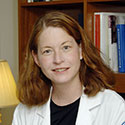
Study finds clear communication matters
ADAM17 Controls Cellular Signaling in Key Process of New Bone Growth
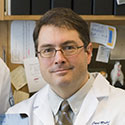
Mice whose cartilage cells were missing ADAM17 did not experience proper long bone growth.
ADAM17, a crucial regulator of cell-to-cell interaction in inflammation, has been found to control cellular signaling in terminal differentiation of chrondrocytes a key process of new bone growth.
The long bones of the skeleton are formed through a complex process called endochondral ossification, in which the matrix made by cartilage cells known as chondrocytes is transformed into hard, new bone. Terminal differentiation refers to the final maturation process of chondrocytes, which allows these cells to synthesize a matrix that can be mineralized as part of the formation of new bone.
A recent HSS-led study has shown that ADAM17 controls cellular signaling during terminal differentiation of chondrocytes in the growth plate of long bones, specifically along the growth factor TGFα/EGFR axis.
Mice bred without ADAM17 in their endochondral chondrocytes did not have proper ossification or normal long bone growth because the cellular signaling that ADAM17 would normally send to regulate the differentiation of chondrocytes and permit the deposition of new bone was disrupted in these animals.
This study was presented at the 2013 ACR Annual Meeting.
iRHOM2 is a Critical Pathogenic Mediator of Inflammatory Arthritis
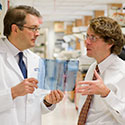
Selectively targeting iRHOM2 could create new therapies to treat RA with less side effects
Two exciting studies at HSS have shown that inactive rhomboid protein 2 – or iRHOM2 – is a promising target for new therapies to treat rheumatoid arthritis (RA). Currently, biologic drugs used to treat RA block the cytokine tumor necrosis factor alpha (TNF-α) from signaling for inflammation. New iRHOM2 therapies would intervene earlier in the inflammatory process.
TNF-α is released into signaling action by a process known as shedding. A kind of molecular scissors called TACE, or tumor necrosis factor-α converting enzyme, snips the tether that holds TNF-α on the membranes of macrophage cells of the immune system. TNF-α “sheds” into the bloodstream. However, any drug that blocked TACE system-wide to prevent shedding would also block TACE’s other important functions like protecting skin and the intestinal barrier.
Now, HSS-led research has found that iRHOM2 regulates TACE’s shedding functions. Essentially, iRHOM2 wraps around TACE to help it shed TNF-α. Further, these studies suggest the exciting possibility that monocloclonal antibodies could be developed to prevent iRHOM2 from allowing TACE to shed TNF-α, but not stop TACE’s necessary and helpful functions.
Experiments at HSS with special mice who had no iRHOM2, found that the mice, when challenged to develop inflammatory arthritis, remained healthy. New iRHOM2 therapies could potentially cause less side effects than anti-TNF drugs, and benefit patients with conditions that anti-TNF drugs do not currently help.
This study was presented at the 2013 ACR Annual Meeting.
For more information about inflammatory arthritis treatment at HSS, see the Inflammatory Arthritis Center.
Timely, Effective Treatment of Rheumatoid Arthritis Reduces Disability Two Years Out

Delaying treatment for RA can increase chances of long-term joint damage
Patients with early rheumatoid arthritis (RA) who reach the treatment target of low disease activity (LDA) at 6 months show less joint damage and functional ability after two years than those who do not achieve the target. LDA means joint pain, swelling, and other markers of inflammation are markedly reduced.
These important findings are from a study using data from the Canadian early ArThritis Cohort (CATCH), an ongoing multi-center project which has been collecting information on patients with early inflammatory arthritis in Canada since 2007. HSS Attending Rheumatologist Vivian Bykerk, MD, is chair and director of CATCH.
Of the 833 patients in the study, 56% achieved LDA at 6 months. Dr. Bykerk believes there is a window for RA treatment within the first three months of developing joint inflammation. During the window, patients with RA have a better chance of getting the disease under good control, with many needing less intense therapy over the long run.
This study was presented at the 2013 ACR Annual Meeting.
For more information about rheumatoid arthritis treatment at HSS, see the Inflammatory Arthritis Center.
Enhanced ROCK Activation in Lupus

Comparing 28 patients with lupus to 25 healthy control patients, a research team of HSS scientists and rheumatologists found that the patients with lupus had increased activity of proteins called rho-associated kinases – or ROCKs. This enhanced activity was associated with differentiation of the Th17 cells of the immune system.
In lupus, inflammation can be triggered by signals from two key cytokine messengers – interleukin 17 (IL-17) and interleukin 21 (IL-21). To produce these cytokines the body requires a transcription factor called IRF4.
The ability of IRF4 to drive cytokine production is controlled by ROCKs – which phosphorylate IRF4. Drugs that inhibit ROCK activity are already used to treat cardiovascular and other diseases. In previous studies, using lupus mice, the HSS team showed drugs that inhibit ROCKs could reduce inflammation. In this new study, using human T cells, ROCK inhibitors reduced production of IL-17 and IL-21. These results support the idea that ROCKs could be promising therapeutic targets for treating lupus.
This study was presented at the 2013 ACR Annual Meeting.
For more information about lupus treatment at HSS, see the Lupus and APS Center of Excellence.
Social Isolation Increases the Risk of Persistent Pain After Hip Replacement

A large outcomes study of 223 patients with rheumatoid arthritis (RA) and 561 with osteoarthritis (OA) who underwent total hip replacement at HSS shows that being socially isolated is associated with almost three times the odds of experiencing painful results after surgery.
Furthermore, social isolation appears to be more significant in OA, which comprises the vast majority of hip replacement cases.
This study was presented at the 2013 ACR Annual Meeting.
For more information about rheumatoid arthritis treatment at HSS, see the Inflammatory Arthritis Center.
Adverse Pregnancy Outcome in Lupus Pregnancies Associated with Angiogenic Factor Dysregulation

New biomarkers could help identify pregnancies at risk in patients with lupus or aPL.
Adult bodies form new blood vessels from existing ones through a process called angiogensis. During pregnancy, a woman’s body grows many new blood vessels to support the developing fetus. The biological molecules involved in the growth processes are called angiogenic factors.
A recent study has found that specific alterations in angiogenic factors early in pregnancy are strongly associated with preeclampsia and other poor outcomes in pregnant patients with lupus or antiphospholipid antibodies (aPL).
Increased levels of sFlt1 (an anti-angiogenic factor) and/or decreased levels of placental growth factor or PlGF (a pro-angiogenic factor) suggest that a pregnancy may be destined for complications.
Using levels of angiogenic factors as biomarkers, doctors can identify pregnancies at risk before 15 weeks, allowing early intervention and revealing novel targets for treatment.
This study was presented at the 2013 ACR Annual Meeting.
For more information about lupus treatment at HSS, see the Lupus and APS Center of Excellence.
Rituximab Shown Effective for Ear, Nose, and Throat Manifestations of GPA

Featuring Lindsay S. Lally, MD; Robert Lebovics, MD; Wei-Ti Huang, MS; Robert F. Spiera, MD
In this large study, patients treated with RTX were far less likely to have active ENT disease.
Ear, nose, and throat (ENT) involvement is the most prevalent manifestation of granulomatosis with polyangiitis (GPA) or Wegener’s granulomatosis.
The drug Rituximab (RTX) has proven effective in treating severe GPA involving vasculitic manifestations, but its effectiveness in treating ENT manifestations in GPA has been less certain.
Reviewing data from 99 patients and 975 office visits, RTX was found superior to conventional immunosuppressives for ENT manifestations of GPA.
Dr. Lally presented this study at the 2013 ACR Annual Meeting, where she received the Distinguished Fellow Award.
First Large Outcomes Studies to Focus on Joint Replacements for Patients with Psoriatic Arthritis

Having psoriatic arthritis does not prevent good outcomes in either hip or knee replacement.
Two large studies by an interdisciplinary HSS research team reviewed outcomes in total knee replacement and total hip replacement for patients with psoriatic arthritis (PsA).
Despite worse pre-operative health status, having PsA or cutaneous psoriasis with osteoarthritis (PsC+OA) were not independent risk factors for poor outcomes.
Using the large HSS patient registries, the team was able to identify 289 patients with psoriasis (69 with PsA and 167 PsC+OA) for the hip replacement study and compared their results to 771 patients with OA, alone. The knee replacement study compared 253 patients with psoriasis (76 PsA and 155 PsC+OA) to 547 patients with OA, alone.
In both studies, in 3-to-5 year follow-ups, the patient groups had equally good outcomes in pain and function scores, and were equally satisfied with the results.
This study was presented at the 2013 ACR Annual Meeting.
Read More:
- Total Knee Replacement Outcomes in Patients with Psoriatic Arthritis, Osteoarthritis with Cutaneous Psoriasis, and Osteoarthritis
- Total Hip Arthroplasty Outcomes in Patients with Psoriatic Arthritis, Osteoarthritis with Cutaneous Psoriasis, and Osteoarthritis
For more information about rheumatoid arthritis treatment at HSS, see the Inflammatory Arthritis Center.
High Type I Interferon in SLE Plasma Predicts Future Renal Disease

Monitoring IFN-I activity in SLE plasma could help predict future disease activity, particularly involving the kidney.
The kidney disease lupus nephritis is the most common severe manifestation of systemic lupus erythematosus (SLE). It confers an increased risk of end-stage renal disease and death.
One of the key cytokines that signals for an inflammatory response in the body – type I interferon (IFN-1) – is found at elevated levels in patients with lupus.
Now, a new HSS study has discovered that high IFN-I activity in the plasma of patients with lupus indicates higher likelihood of disease activity, particularly increasing the chances of the patient developing future lupus nephritis.
Furthermore, patients with higher plasma IFN-I activity at study initiation maintained elevated levels at future visits.
Higher IFN-I activity in the plasma of patients with lupus may serve as an important disease monitoring biomarker and help identify patients at risk for lupus nephritis.
This study was presented at the 2013 ACR Annual Meeting.
New Discovery in Bone: The Protein Netrin1 is Required for Osteoclast Differentiation

Netrin1 may be a novel therapeutic target to prevent bone loss leading to loosening of joint replacements in osteolysis.
Netrins are a class of proteins called chemorepulsants that can chemically affect the movement of other cells. Netrins are known to guide axons during fetal brain development. Netrins are also thought to suppress inflammation and affect migration of the immune system’s macrophage cells.
A recent collaborative study between HSS and NYU Medical Center asked whether netrins might be involved in the development of osteoclasts, the cells responsible for dismantling old bone cells to make way for new bone. The answer is yes. Without netrin1, the body cannot properly create new osteoclast cells.
The study found that netrin1 is required for osteoclast differentiation and stimulates that process by an autocrine mechanism.
This study was presented at the 2013 ACR Annual Meeting.
Stimulating Cholinergic Neurotransmitter Receptors Modulates Inflammation in Lupus

New therapies stimulating neurotransmitters may be able to reduce inflammation.
There are neurotransmitter receptors on the immune cells that cause inflammation in lupus. A new HSS study, sponsored in part by the Lupus Research Institute, has revealed that stimulating these cholinergic neurotransmitter receptors resulted in less immune complex-induced inflammation in cultured human cells and less organ damage in mouse models.
The team plans to investigate ways to turn this discovery into treatment. Possibilities include using existing drugs that directly activate cholinergic receptors or cause production of more cholinergic neurotransmitters. Another avenue may be electrically stimulating the vagus nerve, which carries a wide assortment of signals to and from the brain, and governs many reflex responses, to calm inflammation and limit tissue damage.
Patients may also benefit from activities that naturally stimulate the vagal nerve, like aerobic exercise, meditation, acupuncture, and relaxation training.
This study was presented at the 2013 ACR Annual Meeting.
For more information about lupus treatment at HSS, see the Lupus and APS Center of Excellence.
The Effect of Statin Therapy on the Risk of Blood Clots After Hip or Knee Arthroplasty

Statins shown to protect against PE although not total VTE following hip or knee replacement.
An interdisciplinary HSS research team has found that statin drug therapy can protect against pulmonary embolism (PE) although not total venous thromboembolism (VTE) following hip or knee total joint replacement.
The team reviewed 16,183 returned 6-month questionnaires from patients who had total hip or knee replacement at HSS. 40% of the patients were on statin therapy.
Other findings included that patients on statins were older (68.9 vs 63 years), heavier (BMI 29.6 vs 28.3), more commonly male (49.2% vs 38.5%), had a longer length of stay (5.0 vs 4.9 days), and were more commonly discharged to a rehabilitation center (46.9% vs 37.9%). venous thromboembolism (VTE) following hip or knee total joint replacement.
This study was presented at the 2013 ACR Annual Meeting.
Refer to a Rheumatologist
With the largest group of rheumatologists in the country, Hospital for Special Surgery is a world leader in the research and treatment of rheumatic disease. HSS embraces a philosophy of integrative care. HSS rheumatologists will refer your patients, as needed, to our staff of expert orthopaedists, physical and occupational therapists, and psychological support services, as well as non-traditional health care providers.
To refer a patient to Hospital for Special Surgery, contact HSSConnect by calling
Our representatives will answer your questions about:
- physician credentials
- subspecialty expertise
- insurance and managed care plans
Representatives from the HSSConnect are available to respond to your referral request weekdays between 9:00am and 5:00pm (ET).
